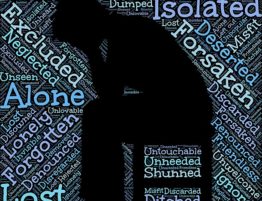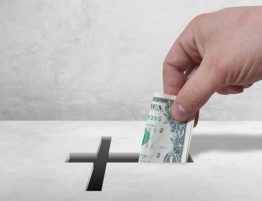
The Bible teaches that Solomon was blessed with immense wisdom and riches. But he married 700 wives who led him astray, and he followed after other gods. The Bible never says he repented or came back to God. So did Solomon die in his sins? Did he ever come back to God? Or is he in hell as we speak?
This may sound like a trivial academic question, but it is not. It impinges on everyday issues believers face, such as God’s security vs human free will. Let’s explore these issues in this article.
Main Points
-
- Solomon sinned, but he did not forsake God altogether.
- God brought him back to repentance before he wrote Ecclesiastes.
DOWNLOAD FREE CHAPTERS FROM OUR NEW BOOKS
Key Scriptures
Consider the following scriptures where God gave some kind of promise to Solomon.
2 Samuel 7:14-16 (God speaking to David about Solomon)
I will be his Father, and he shall be My son. If he commits iniquity, I will chasten him with the rod of men and with the blows of the sons of men.
But My mercy shall not depart from him, as I took it from Saul, whom I removed from before you.
And your house and your kingdom shall be established forever before you. Your throne shall be established forever.
1 Chronicles 28:9 (David speaking to Solomon)
As for you, my son Solomon, know the God of your father, and serve Him with a loyal heart and with a willing mind; for the Lord searches all hearts and understands all the intent of the thoughts. If you seek Him, He will be found by you; but if you forsake Him, He will cast you off forever.
How could both scriptures be true at the same time?
In 2 Samuel, God said if Solomon sinned, God would chasten him but not forsake him the way He forsook Saul, and took His mercy from him. That appears to be an unconditional promise of security. In 1 Chronicles 28, we learn that if Solomon forsook God, God will cast him off FOREVER. So how could both of those scriptures be true at the same time?
Someone may say, “Well you know, 2 Samuel 7 only appears to be an unconditional promise, but conditions are always implied when God gives a promise.” That is not true. 2 Samuel 7 does state a condition. God said very clearly what would happen IF Solomon sinned – He would chasten but not forsake. The conditions were clearly laid out.
We need to establish an interpretation of Solomon’s life where both those scriptures are true at the same time? What needed to happen for both of them to be true? Let’s look at it logically.
- If Solomon forsook God, God would cast him off forever.
- But if God casted him off forever, that would violate God’s clear-as-day promise in 2 Samuel 7.
- Therefore for both scriptures to be true, Solomon must not have “forsaken” God.
Solomon sinned, but did not forsake God
So what exactly did Solomon do? 1 Kings 11 gives us the answer.
- It says his heart was not loyal to the Lord as was David (1 Kings 11:4)
- He did not fully follow the Lord as did David. (1 Kings 11:6)
- His heart turned away from the Lord. (1 Kings 11: 9)
- He did not keep what the Lord had commanded. (1 Kings 11:10)
It never really said he forsook the Lord. Forsaking the Lord would entail a complete repudiation of God. Solomon did not appear to do that. He seemed to follow the Lord half-heartedly while still following idols. What he did was bad, but it was not full-blown apostasy. This would explain how both those scriptures can be true at the same time.
Furthermore, according to 1 Kings 11:14,23, God raised up adversaries against Solomon. This is exactly what He promised to do if Solomon sinned – chasten him with the blows of men. God’s intention was to bring Solomon to repentance, not damnation.
But the Bible never said Solomon repented
It is true that the Bible nowhere says Solomon repented. But that doesn’t mean he didn’t. It could be that he repented and the scripture writers failed to record it. The mere fact that the Bible did not say he repented is NOT proof that he didn’t repent.
The Bible never says David repented either
We all know that David sinned with Bathsheba and later repented. But which scripture says so? The answer is NONE. Nowhere in Samuel, Kings or Chronicles does it say David repented. David admitted guilt when Nathan the prophet confronted him (2 Samuel 12:13). Mere confession of guilt is not repentance. Saul also confessed guilt and was not forgiven by God (1 Samuel 15:24). Then David fasted for a week so God would not kill the child of adultery. But that was not repentance either.
The only clear scripture that showed David repented is Psalm 51, which is a genuine prayer of repentance. But how do you know David wrote that Psalm? His name does not appear in the Psalm. The Psalm does not describe any event that identifies David.
The only way we know David was the author is because of the commentator’s footnote that says “A Psalm of David when Nathan the prophet went to him, after he had gone in to Bathsheba.” That’s it. Although that information is accurate, it is not part of the scripture that was inspired by God. It’s what we call extra-Biblical information. Extra-Biblical does not mean it is wrong, simply that it is not inspired by God, and therefore not on the same level as scripture.
So there is no God-inspired scripture that says David repented. Therefore, the mere fact that the Bible did not say Solomon repented, is not sufficient to conclude that he didn’t. But there is a way to show from scripture that Solomon did indeed come back to God.
The book of Ecclesiastes
Ecclesiastes was written by Solomon later in his life. There are many scriptures I can quote, but consider just a few.
Ecclesiastes 2:4,9 I made my works great, I built myself houses … So I became great and excelled more than all who were before me in Jerusalem. Also my wisdom remained with me.
Ecclesiastes 7:15 I have seen everything in my days of vanity
There is incontrovertible internal evidence that Ecclesiastes was written by an older man. If that author was Solomon, then he had to have written it later in his life.
But wait! Scripture was written when God inspired and moved on holy men to write.
2 Peter 1:20-21
knowing this first, that no prophecy of Scripture is of any private interpretation [origin], 21 for prophecy never came by the will of man, but holy men of God spoke as they were moved by the Holy Spirit.
Let’s connect the dots.
- If Solomon wrote Ecclesiastes late in his life,
- If God only used holy men to author the scriptures,
- Then Solomon must have been considered holy when he wrote,
- Therefore, Solomon must have repented of his idolatry and come back to God before that.
Perhaps someone may argue that Solomon was not the author of Ecclesiastes. Who then do you suppose was the author who could have possibly written Ecclesiastes 2:9 (quoted above)?
Conclusion
We see in Solomon an example of how God balances eternal security with human free will. On one hand we are promised security. But on the other hand, we are warned about the dangers of not continuing in the faith. When we sin, God leads us to repentance. He chastens if He has to, sends trials our way. Whatever it takes to draw us back to Him. We just have to be sure to remain in the faith, and then rest in God’s blessed assurance.
Feel free to also check out our articles on apostasy and eternal security.






